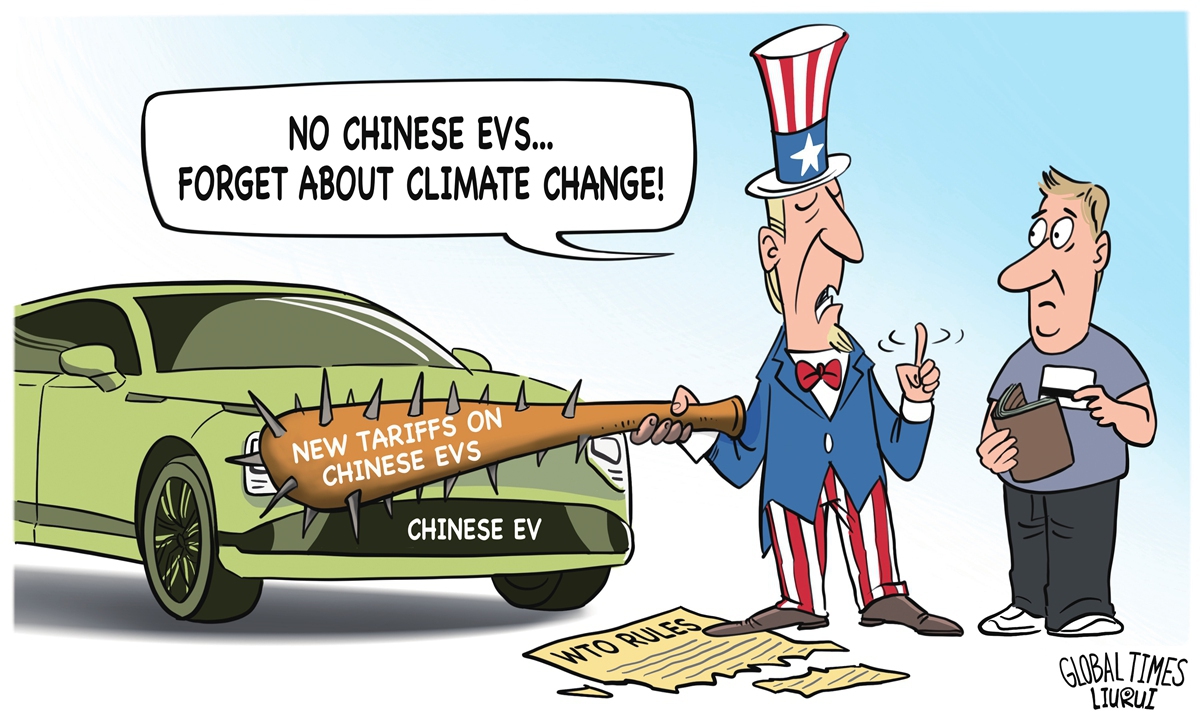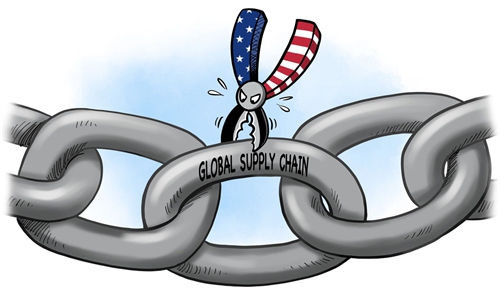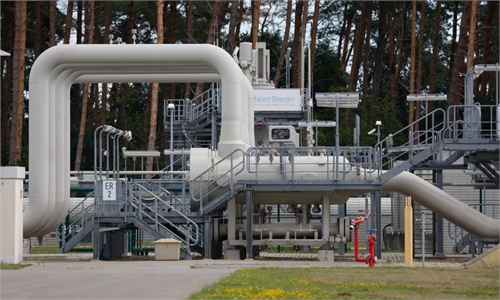
Abusing tariffs. Illustration: Liu Rui/GT
Washington's decision to increase tariffs on Chinese new-energy products has clearly hindered global efforts to reduce emissions. The policy not only goes against the trend of international cooperation in combating climate change but also exposes the shortsighted and self-serving nature of US politicians in addressing global issues.US Energy Secretary Jennifer Granholm said on Tuesday that the quadrupling of import duties on Chinese electric vehicles (EVs) to more than 100 percent in August as planned is crucial to the health of the US auto sector, Reuters reported.
The remarks by Granholm came as a surprise, as Energy Department officials are usually expected to promote the adoption of clean energy in the most efficient manner, and history has repeatedly proven that protectionism cannot make an industry strong.
Perhaps in the eyes of American officials like Granholm, raising tariffs on Chinese EVs is intended to protect the country's auto industry, and they choose to ignore the likely consequence that this move can backfire. But can high tariffs and trade barriers really be helpful in protecting the US auto industry? The answer is no. The US steel industry is a case in point.
In recent years, it has become increasingly common for the US government to impose tariffs on steel products from China, Canada, Mexico and the EU in an effort to protect the American steel industry. However, this protectionism has not strengthened the US steel industry; instead, it has reduced the motivation for technological advances and production efficiency. Consequently, the industry has experienced a decline in jobs, competitiveness and market share.
Late last year, Japan's Nippon Steel proposed a nearly $15 billion takeover of the iconic firm US Steel, sparking opposition from labor unions and politicians. Despite this resistance, it does not change the fact that the US steel industry lacks competitiveness.
If Washington chooses to emulate the "protectionist" approach in the EV sector, the US auto industry could potentially mirror the fate of the steel industry. In comparison with other countries like China, the production volume and consumer acceptance of EVs in the US are relatively modest.
While imposing tariffs may offer temporary protection to American automakers, in the long term, such measures could impede competition, limit market diversity and obstruct advances in technology and cost-efficiency within the industry.
Furthermore, trade protectionism may exacerbate domestic opposition to EVs by increasing tariffs, resulting in higher costs for EVs. This could potentially lead to consumer discontent and a more negative perception of clean-energy products, ultimately affecting their popularity.
Some in the US have already argued that the Biden administration's push to accelerate the transition away from internal combustion vehicles could backfire, as Americans are not voluntarily embracing EVs quickly enough. Given this context, it is possible that trade protectionism could impede America's shift toward clean energy even further.
More importantly, in light of the escalating frequency of extreme weather events, there is a pressing need to address climate change through collaborative global initiatives.
In the US alone, an unprecedented number of billion-dollar disasters - 28 in total - struck the country in 2023, according to US media reports.
This is why there is a growing global consensus on the need to achieve effective emissions reduction and foster sustainable economic development by making significant adjustments to the energy structure, particularly through the widespread adoption of new-energy products to achieve a low level of carbon emissions.
This situation also explains why China's "new three" products have been warmly received in markets worldwide.
In light of these circumstances, the decision by the US to impose tariffs on Chinese new-energy products in order to protect its own industry reveals a concerning indifference among US politicians toward global emissions reduction.
Washington's lag in global climate change efforts is not only detrimental to its own industrial development, but also hinders the progress of the global energy transition.



